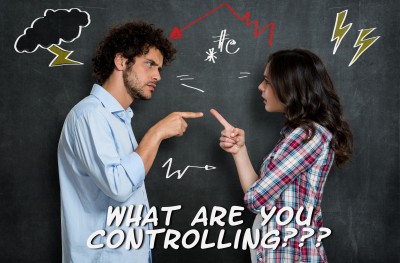What Are You Controlling?
https://savethemarriage.com/stmblog/wp-content/themes/corpus/images/empty/thumbnail.jpg 150 150 Lee H. Baucom, Ph.D. Lee H. Baucom, Ph.D. https://secure.gravatar.com/avatar/669b7e375d93f77521ddaba08adb8063?s=96&d=blank&r=pg So many times, I hear couples say, “Stop Controlling ME!” Interestingly, sometimes, both people are saying it to the other. BOTH people are not likely to get very far in controlling. But BOTH claim a controlling spouse, while NEITHER accepts being controlling.
So many times, I hear couples say, “Stop Controlling ME!” Interestingly, sometimes, both people are saying it to the other. BOTH people are not likely to get very far in controlling. But BOTH claim a controlling spouse, while NEITHER accepts being controlling.
Why is that?
From my perspective, people spend a great deal of energy trying to control things that cannot be controlled, and forgetting to control the things they CAN control.
And this is why both people can feel controlled, and neither can feel controlling.
Do you feel that you are in a controlling marriage, with a controlling spouse? Do you think YOU might be controlling, of your spouse and of your relationship?
Consider 3 categories of control, things over which you:
- have NO control,
- have PARTIAL control,
- have FULL control.
Spend your time trying to control the things over which you have no control, and you are headed for frustration (your spouse’s and yours). Forget to control the things you can, and you are headed for problems.
Let’s talk about control — where you have it and where you don’t.
RELATED RESOURCES:
End Your Controlling Behavior
Stop Being Controlling
Countrol, Boundaries, & Standards
“Why Are We Fighting?”
Stop Pursuing
The Save The Marriage System
Podcast: Play in new window | Download
Subscribe: RSS